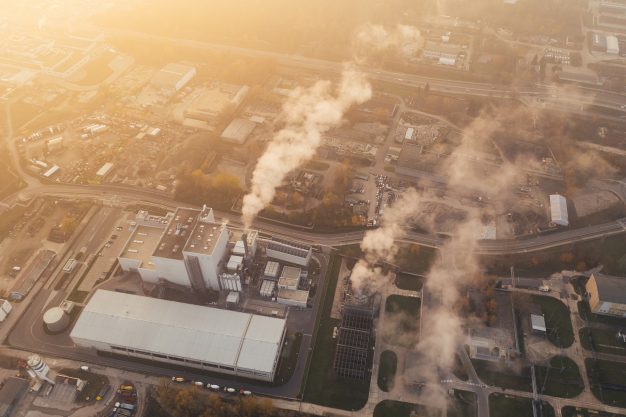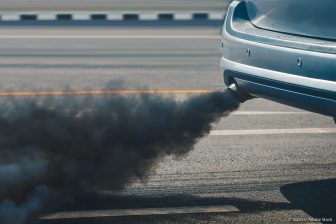
Why should Polish city children experience worse pollution than French children?
Polish children are significantly more exposed to air pollution than French children.
That’s the stark conclusion by researchers in Belgium who found that some 30 children in the Polish city of Rybnik were between three and nine times more exposed to air pollution than children in Strasbourg, France.
Klaudyna Szewczyk lives in Rybnik, where a coal-fired power station sits on the outskirts of the city. She suffered a stroke three years ago that she’s since realised was caused by the air pollution.
She is now a local campaigner and the mother of two children involved in the study. She said she was expecting bad results, but not as bad as they received. Her family have decided to move.
‘Some policy is already thinking greener’
“When we got the results, my husband told me we have to look for another place to live – now,” she said. “So we are looking to move out from Rybnik to prevent any health [issues] in our children and ourselves.”
Tests on children in Rybnik and Strasbourg found the Polish children had an average of 425 per cent more black carbon, a carcinogenic substance linked to the burning of fossil fuels, in their urine, according to the researchers at the University of Hasselt. Tim Nawrot, the lead scientist on the project, said he ‘had never seen’ such high concentrations.
Children are particularly vulnerable to air pollution. Particulate matter, including black carbon, is associated in early life with lower birth rate, decreased cognitive function, impaired cognitive ageing, increased cardiovascular morbidity and mortality as well as respiratory and cancerous diseases in later life.
The results of the survey have been highlighted by Euractiv, a European Union-backed initiative that promotes the work being done by cities on issues including the environment, education and technology.
Polish Smog Alert, a social movement fighting for better air quality in the country, says that “the poor condition of the air is responsible for 45,000 premature deaths in the country and numerous health problems”.
‘Governments talk about change but are not acting’
Martin Boudot, a French documentary maker, worked with the scientists, and he is optimistic that the data will help change and that some policy is already beginning to become greener.
Yet he also knows the strength of the coal lobby, and didn’t think the gap would be so large. He added: “I am very concerned for these kids. I look at my kids and wonder how I would react and what solutions I would have, so it tears me apart to be honest.”
Many people take measures into their own hands, choosing to wear masks long before COVID hit and installing air cleaners. Szewczyk is lucky because she is in the position where she can move. She said the local and national government talks about change, but is not acting on it.
“I’m really tired,” she said. “We tried so, so hard, and for so many years, and nothing moved and nothing changed at all.”
‘Air pollution must be treated as seriously as COVID’
Polish energy production is extremely reliant on coal with 74 per cent of its electricity coming from coal power stations in 2018. Last year, it was the country in Europe with the highest consumption of coal, according to Eurostat.
Szewczyk wants the government to take air pollution as seriously as COVID and strongly suggest citizens wear a mask and don’t burn rubbish. That change must be replicated in society, where her neighbours “burn trash, plastic and even clothes”. Her children were “ashamed” to wear masks pre-COVID.
“The parents and some of the teachers, they think it’s not a problem. People lived twenty, thirty years ago in worse air pollution and are still alive. That’s their argument, a silly argument, but they say things like that,” she said.
The World Health Organisation found that Polish cities were 36 of the 50 cities in Europe with the worst air pollution.




